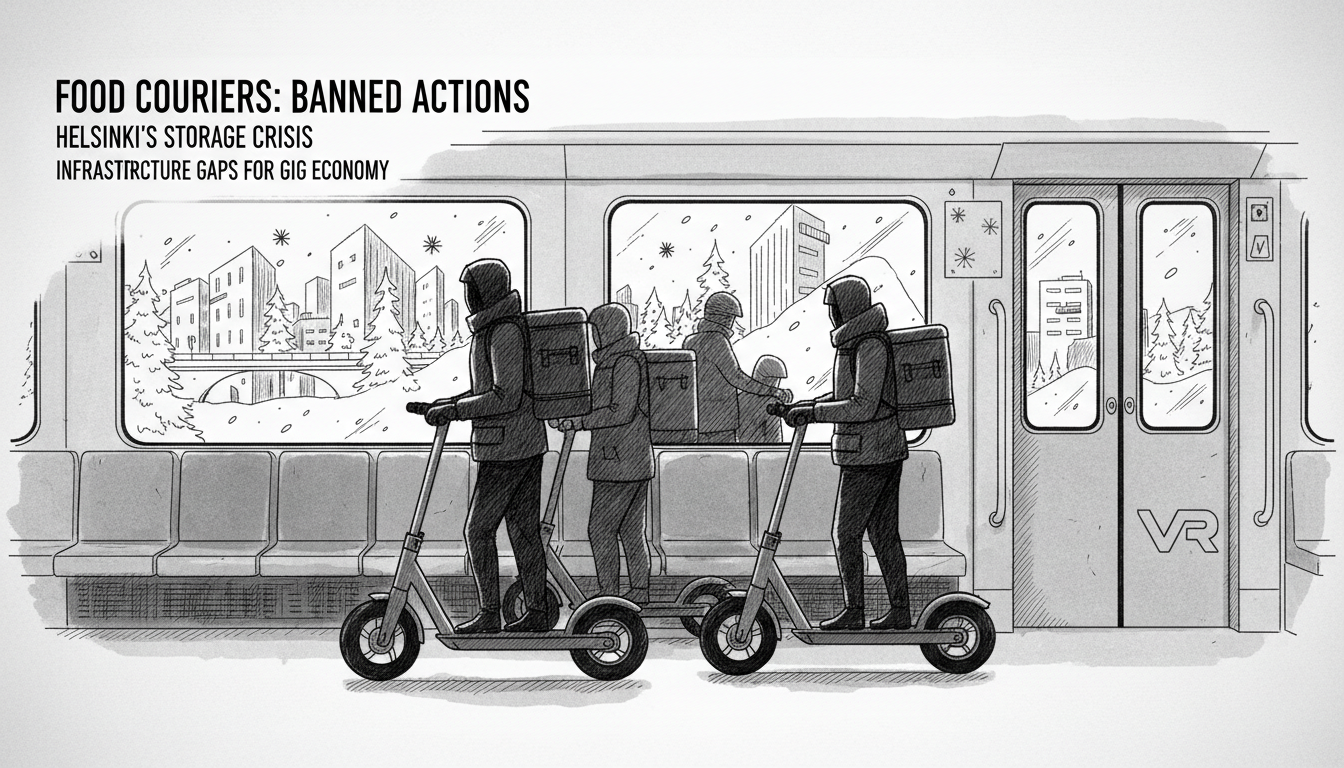Food delivery workers in Helsinki have started taking unauthorized actions due to stricter enforcement of vehicle storage rules. Couriers now transport their electric scooters on commuter trains during evenings, presumably to take them home for overnight storage. This practice directly violates Helsinki Regional Transport Authority regulations.
Transport officials confirm that only electric mobility aids for passengers with disabilities may be carried on public transport vehicles. The spokesperson stated that food couriers' electric scooters do not qualify under these exceptions. This creates a clear conflict between delivery workers' practical needs and existing transport policies.
Major food delivery platforms currently provide no dedicated parking or storage facilities for courier vehicles in the Finnish capital. This infrastructure gap leaves delivery workers with limited options for securing their essential work equipment overnight. The situation highlights growing tensions in Helsinki's gig economy.
Electric scooters represent substantial investments for food couriers, often costing several hundred euros. Many workers cannot afford to replace stolen or damaged vehicles. The lack of secure storage options forces couriers to choose between violating transport rules or risking their livelihood.
Helsinki faces broader challenges integrating new mobility services with existing urban infrastructure. The city's famous Kaisa Tunnel bicycle parking facility has tightened enforcement of storage rules, triggering this current conflict. Similar issues have emerged in other Nordic cities experiencing rapid growth in food delivery services.
This situation reflects wider European debates about gig worker rights and urban infrastructure. Food couriers operate as independent contractors rather than employees, which limits companies' obligations to provide facilities. The current standoff demonstrates how urban planning struggles to keep pace with evolving work patterns.
Local residents have reported seeing delivery workers carrying electric scooters on trains during evening hours. Some commuters express safety concerns about the practice, while others sympathize with the couriers' predicament. The visual of food delivery scooters in train carriages has become increasingly common in Helsinki.
Transport authorities face enforcement challenges with these new mobility patterns. Identifying which electric scooters belong to food couriers versus private citizens creates practical difficulties. The situation requires balancing safety regulations with recognition of delivery workers' genuine needs.
Food delivery services have transformed urban mobility in Nordic capitals over recent years. The current conflict over vehicle storage represents a growing pain in this transition. Sustainable solutions will likely require cooperation between transport authorities, delivery platforms, and city planners.
The immediate resolution remains unclear. Delivery workers continue needing to protect their vehicles, while transport regulations remain firm. This standoff illustrates how new work models can challenge existing urban systems and regulations.

